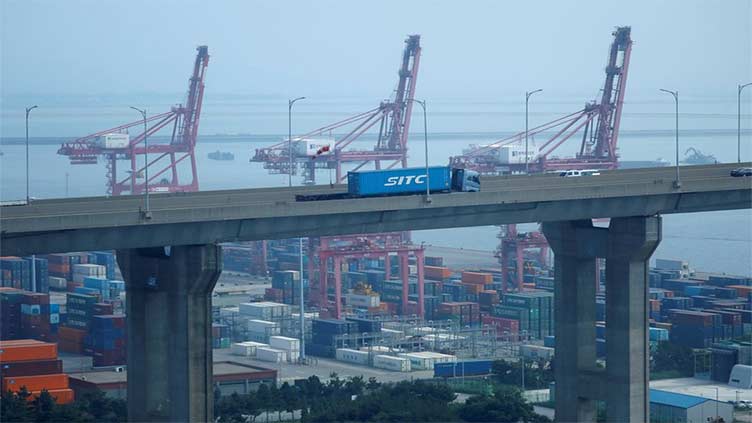South Korea slides toward recession as Jan exports plunge

Business
South Korea slides toward recession as Jan exports plunge
SEOUL, (Reuters) - South Korea’s economy inched toward its first recession in three years as data on Wednesday showed its January trade deficit soared to a record thanks to a plunge in exports caused by a combination of long holidays and cooling global demand.
Asia’s fourth-largest economy, which relies heavily on trade for growth, shrank by 0.4% in the October-December quarter and is now on the brink of falling into what would be its first recession since the middle of 2020 during the height of the Covid-19 pandemic.
Exports fell 16.6% in January from a year earlier, trade ministry data showed, worse than an 11.3% decline predicted in a Reuters survey and the fastest drop in exports since May 2020.
Imports fell 2.6% compared with a year earlier, less than a 3.6% drop predicted in the survey. As a result, the country posted a monthly trade deficit of $12.69 billion, setting a record amount for any month.
"I have a zero percent forecast for the first-quarter growth but today’s trade figures are definitely a minus to that," said Park Sang-hyun, economist at HI Investment and Securities.
The increasing chances of recession - two consecutive quarters of decline in gross domestic product - also underscore growing bets in markets that the central bank’s campaign of raising interest rates since late 2021 has run its course.
Leading the sluggish trade performance in January were a 44.5% dive in semiconductor exports and a whopping 31.4% plunge in sales to China, the trade ministry data showed.
Both were the worst rates of decline since the 2008/2009 global financial crisis.
South Korean bond yields fell across the board on the growing bets for a less restrictive monetary policy ahead, while stock (.KS11) and currency investors largely shrugged off the monthly figures.
Finance Minister Choo Kyung-ho blamed long lunar New Year holidays in China and a steep fall in computer chip prices versus a year ago for the sharp declines in export values, adding China’s reopening would help ease the situation over time.
"The government will mobilise all available policy resources to help support a drive to boost exports so that the timing of improvement in trade balance can be advanced," Choo said at a meeting of trade-related officials, without elaborating.
The government has forecast this year’s exports would fall 4.5% after posting a 6.1% gain in 2022, and the trade ministry has said it would do what it can to avert a decline.

